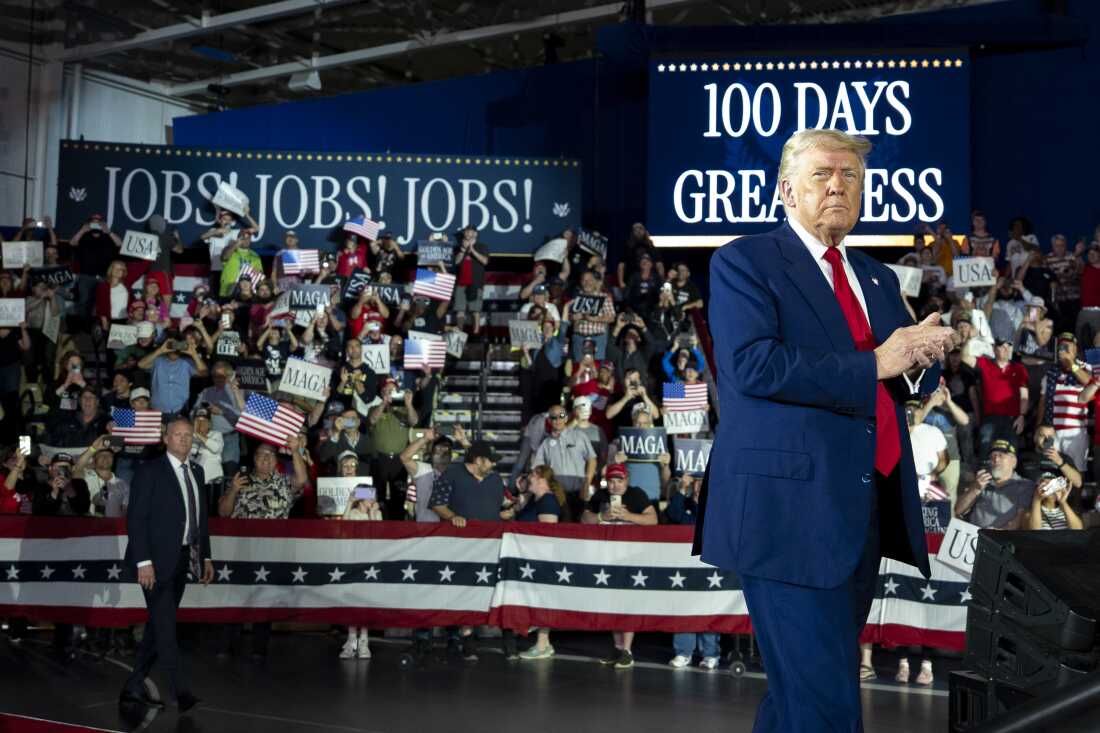The extreme radicalism of the U.S. president’s thinking, coupled with the chaotic nature of his policies and their implementation, has significantly accelerated fragmentation and may even precipitate the collapse of the global governance structure.

As U.S. President Donald Trump completes the first 100 days of his second term, the profound implications of his policy adjustments are unfolding across the United States and globally. These changes have intensified international turbulence and may deliver long-term shocks to the global standing of the United States and global governance.
Trump is bent on remaking America and has set the stage for cataclysmic division in the U.S. as a nation. His MAGA agenda, which seeks to recreate America’s Gilded Age, has shaken the U.S. governance system, including the reorganization of key government departments and a reduction of personnel and budgets in national security-related agencies. These moves align with the conservative policy recommendations of the Heritage Foundation in its Project 2025. While they appear to reverse the governing approach of the Democratic Party, they fundamentally aim to reshape existing political and economic interest patterns. Trump’s “draining the swamp” is, in fact an effort to create new interest groups that serve his personal agenda.
A reorganization of interests inevitably sparks opposition, especially in a context marked by political polarization, social fragmentation and deepening class divisions. Trump’s efforts to shake things up are only exacerbating already fraught contradictions.
His policies have faced broad resistance from various domestic political forces. For instance, Trump’s so-called reciprocal tariffs have damaged stock, bond and exchange rate markets and prompted lawsuits from 11 states. His “anti-wokeness” policies have spurred the 50501 movement, which has organized 50 protests across 50 states under a single, unified banner. Left-wing organizations are rallying en masse against him.
In a nation that prides itself on diversity, Trump’s governance has laid bare deep-seated contradictions that have been obscured by America’s institutional design since the country’s founding. This could potentially shift the notion of diversity toward a more fragmented and splintered governance system.
Trump’s governance agenda has sown discord between the U.S. and its allies. During his first term, questioning the value of alliances emerged as a defining feature of his policy approach. In his second term, his perspective on the alliance system — a cornerstone of U.S. hegemony — has grown even more transactional. Drawing on his dubious background as a businessman, he assesses alliances based on the potential gains for the U.S., often viewing them as a burden. This is clear in his demand that allies boost their defense spending and in his penchant for trade concessions in exchange for tariff reductions. For Trump, allies are mere transactional partners, not strategic assets essential for maintaining U.S. dominance.
U.S. allies are striving to adapt to Trump’s approach while bracing for potential fallout. Remarks from officials in his administration about differences in transatlantic values have stung Europe and prompted intensified policy adjustments. Germany is contemplating militarization again., France is bolstering its “strategic autonomy” and Nordic countries are contemplating EU membership — all reflecting a growing distrust of the transatlantic alliance. Canada, America’s northern neighbor, has seen a rare surge in hostility toward the U.S. because of Trump's actions — which altered the dynamics of its general elections. Even countries that have recently grown closer to the U.S. are quietly questioning its economic and immigration policies and are increasingly seeking stronger ties with other major powers.
Trump’s disregard for the responsibilities of global governance is fueling new chaos and fragmentation. While the world has grown accustomed to his frequent deal-breaking and withdrawals, the long-term impact is becoming more severe. Critically, his policies are creating turmoil in key areas such as global climate change and financial stability.
Regarding climate change, Trump’s skepticism has dealt a serious blow to the Paris agreement’s goals of reducing emissions by 2030 and achieving net-zero by 2050. It has also triggered a backlash against the green transition around the world. On the financial front, Trump’s contradictory approach of pursuing a weak dollar to cut back on debt service while maintaining the dollar’s reserve currency status and showing an inclination towards cryptocurrencies has caused significant disruptions in international financial markets. The Economist noted that the U.S. dollar, once a safe-haven asset, has now become a source of panic.
While recent U.S. administrations have endeavored to reshape the global governance system from various perspectives, the extreme radicalism of Trump’s thinking, coupled with the chaotic nature of his policies and their implementation, has significantly accelerated fragmentation and may even precipitate the collapse of the global governance structure. His penchant for prioritizing personal interests over international credibility and responsibility may prompt other nations to follow suit for their own survival. This could further exacerbate the dangers of the current global upheaval, characterized by disorder in global governance and the erosion of international cooperation.
